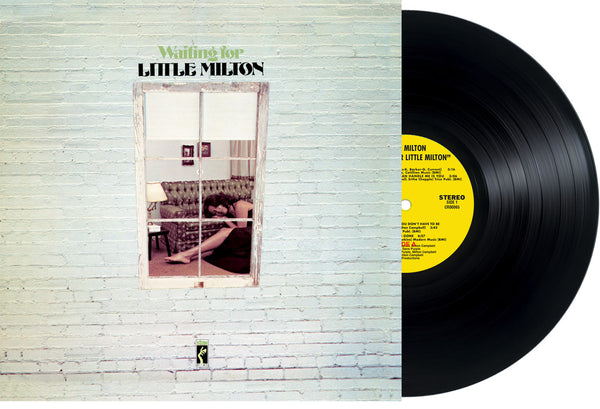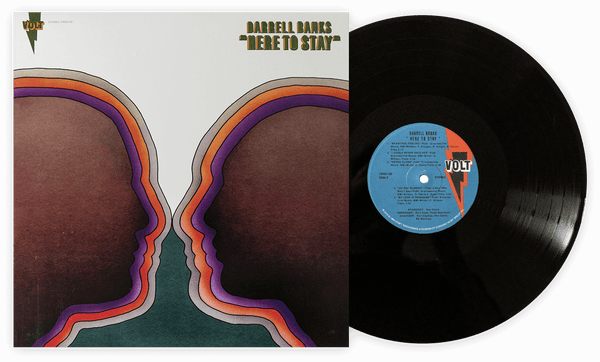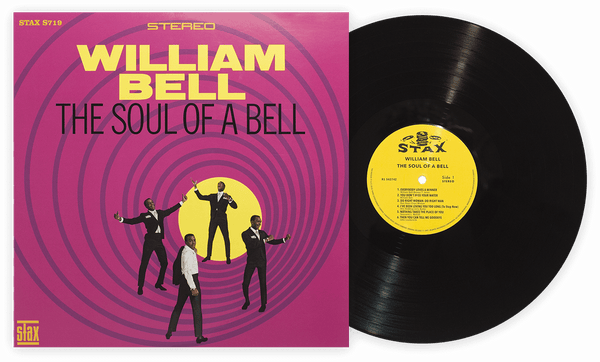Sam & Dave เป็นที่รู้จักกันในฐานะหนึ่งในกลุ่มโซลที่ประสบความสำเร็จมากที่สุดและการแสดงสดที่ยอดเยี่ยมที่สุดในช่วงปลายปี ’60 เรื่องเล่าว่าขณะอยู่ในทัวร์ Stax-Volt Revue ที่ยุโรปในปี 1967 การแสดงสดของพวกเขามีพลังงานสูงมากจน Otis Redding เองถึงกับบ่นในบางครั้งว่าเขาไม่อยากแสดงหลังจากพวกเขา โดยมีนัยว่า Redding ไม่คิดว่าเขาจะสามารถรักษามาตรฐานที่พวกเขาตั้งไว้ได้ นี่ไม่เลวเลยสำหรับดูโอที่เกิดขึ้นโดยบังเอิญ.
แซม มัวร์รักเพลงกอสเปลและมีส่วนร่วมในกลุ่มร้องเพลงท้องถิ่นตั้งแต่ทศวรรษ ’50 ขณะทำงานที่ไนท์คลับในไมอามีบ้านเกิดของเขาในปี 1961 เขาได้เข้าร่วมจัดงานโชว์ความสามารถที่ไม่เป็นทางการ ในขณะนั้น เดฟ เพรเตอร์ ซึ่งเป็นคนงานในร้านเบเกอรี่ ก็มาที่นั่น เขาชื่นชอบเพลงกอสเปลและมีประสบการณ์กับกลุ่มร้องเพลงตามมาด้วย ตามคำบอกเล่าของมัวร์ เพรเตอร์เลือกเพลงของแจ็คกี้ วิลสันซึ่งเขาไม่รู้ทุกคำ และมัวร์ก็ยินดีไปช่วยเขา โดยอาศัยการโต้ตอบกันในขณะที่ให้เนื้อเพลงกับเพรเตอร์ ที่จุดหนึ่งไมโครโฟนตกจากขาตั้งและทั้งมัวร์และเพรเตอร์ก็ต้องนั่งลงเพื่อจับมันขึ้นมาเหมือนกับว่าส่วนนี้เป็นส่วนหนึ่งของการแสดง พวกเขาไม่ได้ชนะการแข่งขัน แต่แซม & เดฟ ได้ถือกำเนิดขึ้น
ไม่นานหลังจากการแข่งขันนั้น แซม & เดฟ ได้เซ็นสัญญากับ Roulette Records และเริ่มทำงานเกี่ยวกับเพลงและการแสดง แต่พวกเขาก็ไม่ประสบความสำเร็จที่ Roulette ได้สักที หลังจากที่หลุดจากสัญญา พวกเขาก็ต้องทำงานอย่างหนักในโชว์ จนในต้นปี 1965 พวกเขาก็ได้รับความสนใจจากอาเหม็ด เออร์เทกันแห่ง Atlantic Records ซึ่งนำเจอร์รี เว็กซ์เลอร์ไปชมการแสดงของพวกเขา พวกเขาเซ็นสัญญากับ Atlantic Records แต่แทนที่จะไปบันทึกเสียงที่ Atlantic พวกเขาก็รู้สึกประหลาดใจเมื่อเว็กซ์เลอร์ส่งพวกเขาไปเมมฟิสและ Stax Records ข้อตกลงกับ Atlantic หมายความว่า Stax สามารถปล่อยซิงเกิลและอัลบั้มของแซม & เดฟ ในแบรนด์ของตนได้ แต่ดูโอ้ยังคงมีสัญญากับ Atlantic แซม & เดฟ คุ้นเคยกับชีวิตในเมืองจากไมอามี และเมมฟิสและโซลใต้ถือว่าเป็นชนบท ดังนั้นทั้งคู่จึงรู้สึกไม่ถนัดในตอนแรก อย่างไรก็ตาม การย้ายนี้กลับเป็นโชคดี เพราะ Stax คือที่ที่แซม & เดฟ พบเสียงเพลงที่แท้จริง ขอบคุณพรสวรรค์ในการเขียนเพลงของไอแซค เฮย์สและเดวิด พอร์เตอร์
มัวร์และเพรเตอร์เป็นนักร้องนำ แซมรับช่วงเสียงสูงและเดฟรับเสียงต่ำ และพวกเขาไม่ได้มีการสร้างฮาร์โมนีที่ประณีต แต่แซม & เดฟ กลายเป็นที่รู้จักในชื่อ “ดับเบิ้ลดายไมต์” พวกเขาพึ่งพาพลังงานและรากฐานทางศาสนาของพวกเขา ซึ่งเป็นการผสมผสานที่ระเบิดไปด้วยการโต้ตอบ โดยมีท่าทาง ‘ร้องออกมาดัง ๆ อย่างมีความหมาย’ และการแสดงที่มุ่งมั่นอย่างแรงกล้าที่ทำให้พวกเขากลายเป็นที่รู้จักจากการเหงื่อออกในสูทในทุกการแสดง พวกเขาสามารถสลับไปมาระหว่างเพลงโซลร็อก เช่น “Hold On, I’m Comin’” กับเพลงความรู้สึก เช่น “When Something Is Wrong With My Baby.”
แซม & เดฟ คือของแท้ อัลบั้มของพวกเขาสนุกสนาน กระตุ้น และคุ้มค่าที่จะลองฟัง อัลบั้มต่อไปนี้จะให้แนวคิดว่าผมหมายถึงอะไร
Hold On, I’m Comin’ (1966)
แซม & เดฟ เริ่มทำงานกับทีมงานเขียนเพลงของ Stax ใหม่ ไอแซค เฮย์สและเดวิด พอร์เตอร์ ในต้นปี 1965 โดยหลอมรวมสิ่งที่จะกลายเป็นเสียงสัญลักษณ์ของพวกเขาในซิงเกิลฮิต “You Don’t Know Like I Know” และ “Hold On, I’m Comin’.” พอร์เตอร์ชอบให้กำลังใจในการพูดโต้ตอบ มักจะเขียนเนื้อเพลงใหม่ทันทีที่แซมหรือเดฟสามารถสร้างขึ้นมาได้ โดยมีวงดนตรีจาก Stax เช่น M.G.’s และแตร Mar-Key คอยสนับสนุน แซมและเดฟสามารถนำอิทธิพลจากกอสเปลมาสู่โซลที่มีจังหวะเร็วขึ้น เมื่ออัลบั้ม Hold On, I’m Comin’ วางจำหน่ายในปี 1966 มันขึ้นอันดับ 1 ในชาร์ต R&B ซึ่งช่วยแสดงให้ Stax เห็นว่ามีเงินจำนวนมากจากการปล่อยอัลบั้ม ซึ่งรวมถึงเสียงโซลที่โดดเด่นและความปรารถนาแบบโซล แซม & เดฟ ได้เหยียบเส้นทางเข้าสู่การครอบงำในอีกสองปีข้างหน้า
Double Dynamite (1966)
ทีมเขียนเพลง เฮย์สและพอร์เตอร์ พบแรงบันดาลใจกับแซม & เดฟ ตั้งแต่เซ็นสัญญากับ Atlantic ทุกสองสามเดือน แซมและเดฟจะมาที่เมมฟิส และมีการทำงานกันอย่างวุ่นวายในสตูดิโอบันทึกเสียง Double Dynamite วางจำหน่ายในปี 1966 รวมถึงเพลงฮิต R&B อันดับต้น ๆ เช่น “You Got Me Hummin’” ซึ่งมีการฮัมที่แนะนำอย่างมาก ๆ และเพลงบัลลาดที่เต็มไปด้วยอารมณ์ “When Something Is Wrong With My Baby.” ตามคำบอกเล่าของแซม “When Something” เคยเป็นเพลงของเมเบล จอห์น ซึ่งกำลังซ้อมเพลงอยู่ในสตูดิโอเมื่อพวกเขาได้ยิน เฮย์สและพอร์เตอร์คิดว่ามันจะเหมาะกับแซม & เดฟ และพวกเขาก็ได้บันทึกเพลงนี้ มันโดดเด่นไม่เพียงเพราะเป็นเพลงบัลลาด แต่เพราะเดฟเริ่มเพลงด้วยเวิร์สแรก โดยทั่วไปเดฟจะรับเวิร์สแรกของเพลงเป็นประจำ ซึ่งเป็นหนึ่งในเพลงที่ทำให้คุณอยากจะร้องออกมาว่าคุณจะยืนอยู่กับความรักของคุณไม่ว่าอะไรจะเกิดขึ้น ไฮไลท์อื่น ๆ ในอัลบั้ม ได้แก่ การคัฟเวอร์ “Soothe Me” ของแซม คุก, เวอร์ชั่นที่เต็มไปด้วยอารมณ์ของ “I’m Your Puppet” และการมอบตัวอันช้า “Sleep Good Tonight.” Double Dynamite ขึ้นอันดับ 10 ในชาร์ตอัลบั้ม R&B และแซม & เดฟ ยังคงอยู่บนทางขึ้น
Soul Men (1967)
หลังจากที่แทบจะขโมยโชว์จากโอทิส เรดดิ้งในทัวร์ Stax-Volt Revue ที่ยุโรปกลางปี 1967 แซม & เดฟ กลับเข้าสตูดิโอ เฮย์สและพอร์เตอร์ได้รับแรงบันดาลใจจากการประท้วงเรื่องสิทธิมนุษยชนและเขียน “Soul Man,” เกี่ยวกับการเป็นคนที่สามารถพึ่งพาได้ แต่ก็ยังเต็มไปด้วยความภูมิใจและสร้างพลัง จากนั้นจากเสียงกีตาร์เปิดเพลงของสตีฟ ครอปเปอร์ คุณก็รู้ว่าคุณกำลังจะได้อะไรพิเศษ “Soul Man” เป็นเพลงฮิตที่โดดเด่นในปี 1967 ขึ้นอันดับ 1 ในชาร์ต R&B และอันดับ 2 ในชาร์ตเพลงป๊อป และทำให้แซม & เดฟ ได้รับรางวัลแกรมมี่สำหรับกลุ่ม R&B ที่ดีที่สุด สื่อบางคนคิดถึง Blues Brothers เมื่อได้ยิน “Soul Man” แต่แซม & เดฟ คือที่ที่คุณควรอยู่ เพลงทั้งอัลบั้ม Soul Men (1967) ยอดเยี่ยม “May I Baby” เป็นเพลงจังหวะกลางที่ทำให้คุณติดหูและดูโอ้ก็ทำได้ดีในเวอร์ชั่น “Let It Be Me.” แซม & เดฟ แสดงถึงอิทธิพลที่มีต่อพวกเขาโดยรวมถึงการคัฟเวอร์เพลง “I’m With You” ของ “5” Royales ซึ่งเป็นการบังเอิญที่ครอปเปอร์ได้อ้างถึงกีตาร์สี่ จากโรยัลส์ โลว์แมน พอลลิงเป็นอิทธิพล Soul Men เป็นตัวอย่างผสมผสานที่โดดเด่นของแซม & เดฟ ที่มีอิทธิพลจากกอสเปล และการร้องเสียงอันสั่นสะเทือน เต็มไปด้วยจิตวิญญาณ โดยไปฟังกันนะ
I Thank You (1968)
ในปี 1968 สแต็กซ์และแอตแลนติกแยกทางกัน โดยที่สแต็กซ์สูญเสียคาทาล็อกของตนไปให้แอตแลนติก มันเป็นความเสียหายที่รุนแรงต่อสแต็กซ์ แต่สำหรับแซม & เดฟ หมายความว่าซิงเกิลของพวกเขาจะไม่ออกในป้ายของสแต็กซ์อีกต่อไปเพราะพวกเขาโดยเทคนิคแล้วคือกลุ่มของแอตแลนติก เราคือแสดงถึงการบันทึกเสียงที่พวกเขาได้ทำไว้ที่สแต็กซ์ก่อนการแยก เพราะเป็นซิงเกิลสุดท้ายที่สแต็กซ์ ได้แก่ “I Thank You” ซึ่งเขียนโดยเฮย์สและพอร์เตอร์ มันเป็นเพลงฮิตอันดับ 10 ในชาร์ต R&B และชาร์ตเพลงป๊อป เริ่มเปิดอัลบั้มของแอตแลนติก I Thank You (1968) แม้ว่าจะไม่ประสบความสำเร็จเท่ากับ Soul Men แต่หลายเพลงที่มีเพลงเขียนโดยเฮย์สและพอร์เตอร์ ดังนั้นจึงรวมถึงเพลงที่มีค่า เช่น รุ่นที่เรียบง่ายของ “These Arms of Mine” ขับร้องโดยโอทิส เรดดิ้ง, เสียงเต้นที่ลงตัว “Wrap It Up” (เฮย์ส/พอร์เตอร์) และ “Don’t Turn Your Heater On” (เขียนโดยสตีฟ ครอปเปอร์และอัล เบลล์จากสแต็กซ์) แม้ว่าจะมีปัญหาที่อยู่เบื้องหน้าจากการติดยา, ความขัดแย้งระหว่างแซม มัวร์และเดฟ เพรเตอร์ และการเสียหลักที่แอตแลนติก แซม & เดฟ ยังคงนำความร้อนมาให้ใน I Thank You.
Back At ‘Cha! (1975)
ปีที่ผ่านมานั้นผันผวนสำหรับแซม & เดฟ หลังจากที่ปล่อยอัลบั้ม I Thank You ไม่สามารถทำซิงเกิลของสแต็กซ์ที่แอตแลนติกได้ และความตึงเครียดระหว่างพวกเขาอยู่ที่จุดแตกหัก แซม & เดฟ แยกทางกันในกลางปี 1970 ทั้งคู่พยายามที่จะไปเป็นโซโล แต่พวกเขาก็กลับมารวมกันอีกครั้งในปี 1971 และยังคงทำการแสดงที่คลับและที่อื่น ๆ ที่ยอมให้พวกเขาทำแม้หลังจากที่สัญญากับแอตแลนติกสิ้นสุดในปี ’72 จนกระทั่งปี '74 ที่พวกเขากลับเข้าสตูดิโอ ทั้งแซมและเดฟ ต่างอยู่ในเงื้อมมือของการติดยา แต่กับโปรดิวเซอร์สตีฟ ครอปเปอร์และนักดนตรีเช่น M.G.’s และ Memphis Horns แซม & เดฟ ก็มีเหตุผลที่จะมองโลกในแง่ดี Back At ‘Cha วางจำหน่ายในปี 1975 โดย United Artists และมีสำเนียงโซลใต้ที่ผสมผสานกับฟังก์ยุค 70 ทำให้เป็นอัลบั้มที่น่าสนใจ ซิงเกิล “A Little Bit of Good” เป็นเพลงที่ติดหูและถ้าคุณฟังอย่างใกล้ชิด คุณอาจได้ยินคล้ายกับ “Soul Man” ในมัน แม้ว่าจะไม่ประสบความสำเร็จในเชิงพาณิชย์ แต่เต็มไปด้วยพลังงานของแซม & เดฟ ที่ทำให้คุณต้องเต้น ไฮไลท์รวมถึง “When My Love Hand Comes Down” และเวอร์ชันของพวกเขา “Under the Boardwalk” ซึ่งมีสิ้นสุดดนตรีที่ยาวนานที่คุณอยากให้มันยาวนานกว่านี้ Back At ‘Cha จะเป็นอัลบั้มสุดท้ายของพวกเขาสำหรับเนื้อหาใหม่ และแซม & เดฟ ก็จะจบความสัมพันธ์กันในปี 1981
Marcella Hemmeter เป็นนักเขียนอิสระและผู้ช่วยศาสตราจารย์ที่อาศัยอยู่ในรัฐแมรี่แลนด์และมาจากแคลิฟอร์เนีย เมื่อเธอไม่มีวันกำหนดส่งงานบ่อยครั้งเธอจะบ่นเกี่ยวกับการไม่มีร้าน tamalerias ใกล้บ้านของเธอ







